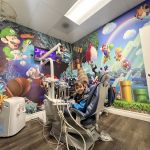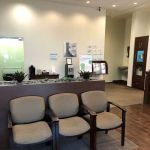- 1-Importance-Early-Detection
- 2-What-Oral-Cancer-Screenings-Involve
- 3-Real-Life-Impact-And-Stories
- 4-How-Regular-Screenings-Save-Lives
- 5-Finding-Trusted-Oral-Health-Services
1. The Importance of Early Detection in Oral Cancer
Oral cancer remains a significant health concern worldwide, with thousands of new cases diagnosed every year. The importance of regular oral cancer screenings lies in their ability to detect early signs of abnormal tissue changes before they develop into life-threatening conditions. Many oral cancers begin without obvious symptoms, making early detection crucial for effective treatment and improved survival rates.
When detected in the initial stages, oral cancer can often be treated successfully with less invasive procedures. This early intervention reduces the risk of complications and enhances the patient’s quality of life. The subtle nature of early oral cancer signs means that without routine screenings, many individuals may miss the opportunity for timely diagnosis.
Experts emphasize that regular screenings should be a standard part of dental checkups, especially for individuals with risk factors such as tobacco use, heavy alcohol consumption, or a history of HPV infection. By prioritizing these screenings, patients can take proactive steps toward safeguarding their oral and overall health.
2. Understanding What Oral Cancer Screenings Involve
2.1. Visual and Physical Examination
During an oral cancer screening, dental professionals conduct a thorough examination of the mouth, including the lips, tongue, cheeks, roof and floor of the mouth, and throat. They look for irregularities such as red or white patches, lumps, or sores that do not heal. This physical check is painless and only takes a few minutes but is vital in spotting early warning signs.
2.2. Advanced Diagnostic Tools
Some practices may use adjunctive tools like special lights or dyes that highlight abnormal cells invisible to the naked eye. These technologies increase the accuracy of screenings and help identify areas needing further investigation or biopsy.
Educating patients on the screening process reduces anxiety and encourages compliance, which is essential for the success of early detection programs.
3. Real-Life Impact: Stories Highlighting the Importance of Regular Oral Cancer Screenings
Consider the story of James, a 52-year-old man who had no pain or visible symptoms but attended a routine dental checkup where a small, unusual lesion was found on his tongue during an oral cancer screening. Thanks to early detection, he received treatment before the cancer progressed, and today, he leads a healthy life. Stories like James’s illustrate how crucial regular screenings are, even for people who feel perfectly healthy.
Another example involves Maria, whose persistent smoking habit placed her at high risk. During a dental visit, the screening revealed early-stage lesions that, if left untreated, could have become aggressive cancers. With timely intervention and lifestyle changes, Maria avoided a potentially fatal outcome. These real cases underline the life-saving potential of regular oral cancer screenings.
4. How Regular Screenings Save Lives Through Prevention and Early Intervention
Regular oral cancer screenings not only help catch disease early but also empower patients with knowledge about risk factors and preventive care. Dental professionals often use these appointments to counsel patients on quitting smoking, reducing alcohol intake, and maintaining good oral hygiene—all critical in lowering oral cancer risk.
Screenings also facilitate monitoring of suspicious areas over time, ensuring any changes are quickly addressed. This vigilance can mean the difference between a simple treatment and complex surgery, prolonged recovery, or worse outcomes.
Emphasizing the importance of these routine exams, many healthcare systems recommend annual oral cancer screenings as part of comprehensive dental care, especially for adults over 40 or those with lifestyle risks.
5. How to Find Trusted Services for Regular Oral Cancer Screenings
5.1. Consult Dental Professionals During Routine Visits
The best way to ensure you receive regular oral cancer screenings is through consistent visits to a trusted dental provider. During your checkups, explicitly request an oral cancer screening if it’s not automatically included. Dentists and hygienists trained in these screenings can provide a thorough assessment tailored to your personal risk profile.
5.2. Use Reputable Platforms to Identify Quality Care
If you’re unsure where to start, websites like Dentistry Toothtruth offer curated recommendations for clinics and specialists offering comprehensive oral health services, including cancer screenings. These resources help connect patients with providers known for quality care and up-to-date screening methods.
5.3. Stay Informed and Proactive
Regular education on oral health risks and the benefits of early detection encourages proactive health management. By choosing trusted sources and providers, patients increase their chances of early diagnosis and better outcomes.







 Children Dental World4.0 (1512 review)
Children Dental World4.0 (1512 review) Inspire Dental of Maine4.0 (297 review)
Inspire Dental of Maine4.0 (297 review) Woodbridge Dental Group and Orthodontics4.0 (265 review)
Woodbridge Dental Group and Orthodontics4.0 (265 review) MDS Dental Solutions, LLC0.0 (0 review)
MDS Dental Solutions, LLC0.0 (0 review) Fusion Dental Care4.0 (1116 review)
Fusion Dental Care4.0 (1116 review) Horton Orthodontics4.0 (426 review)
Horton Orthodontics4.0 (426 review) The Importance of Oral Health Education During Pregnancy for a Healthy Pregnancy
The Importance of Oral Health Education During Pregnancy for a Healthy Pregnancy Best Tips for Brushing Your Teeth Properly for Healthy Gums: Essential Techniques for Oral Health
Best Tips for Brushing Your Teeth Properly for Healthy Gums: Essential Techniques for Oral Health Why Skipping Dental Checkups Can Lead to Bigger Oral Health Problems
Why Skipping Dental Checkups Can Lead to Bigger Oral Health Problems Advantages of Porcelain Dental Restorations
Advantages of Porcelain Dental Restorations How Can Diabetes Cause Tooth and Gum Problems? Preventing and Managing Oral Health Issues
How Can Diabetes Cause Tooth and Gum Problems? Preventing and Managing Oral Health Issues Healthy Habits for Promoting Good Oral Health and Hygiene: Tips for a Healthy Smile
Healthy Habits for Promoting Good Oral Health and Hygiene: Tips for a Healthy Smile